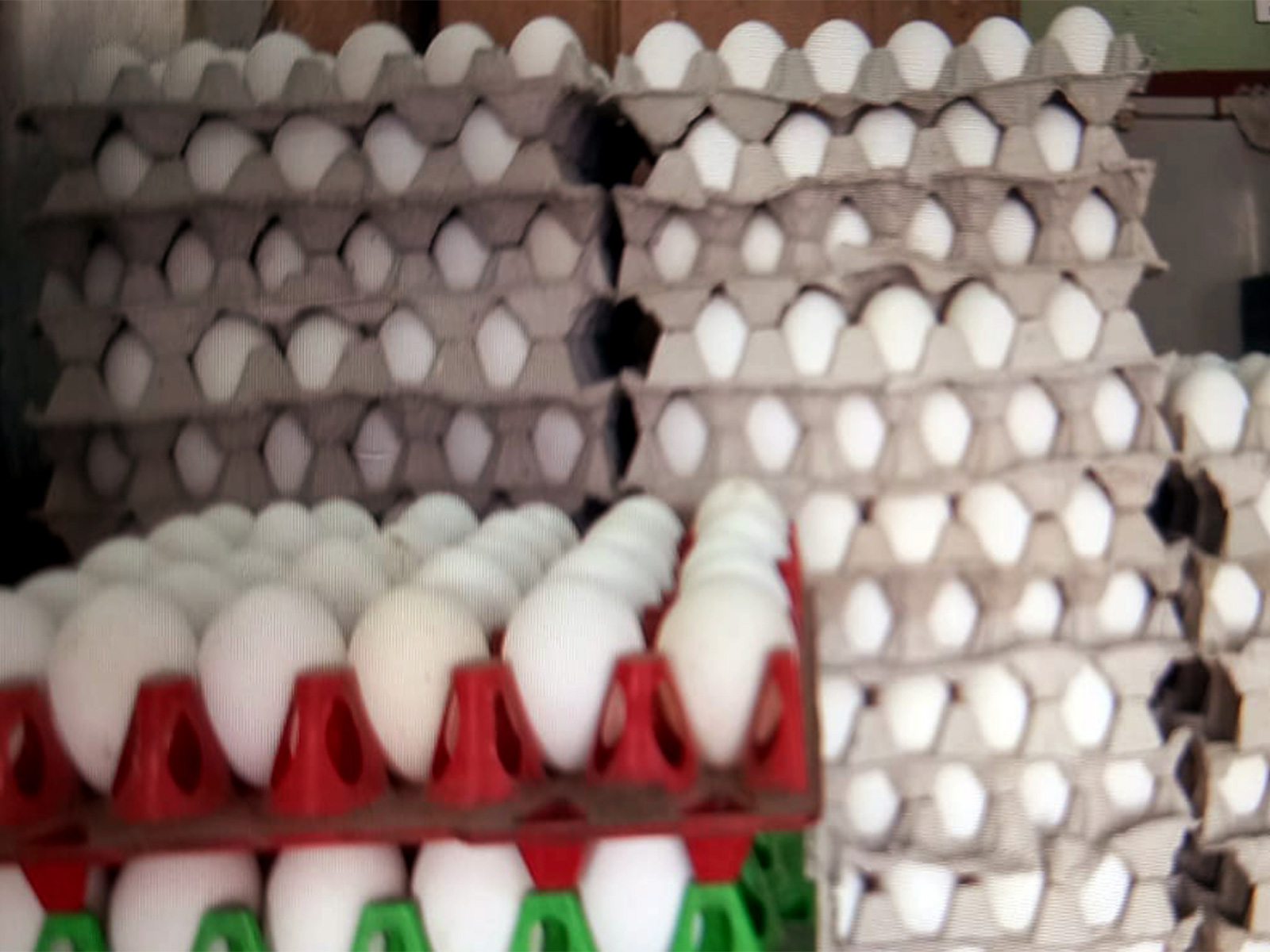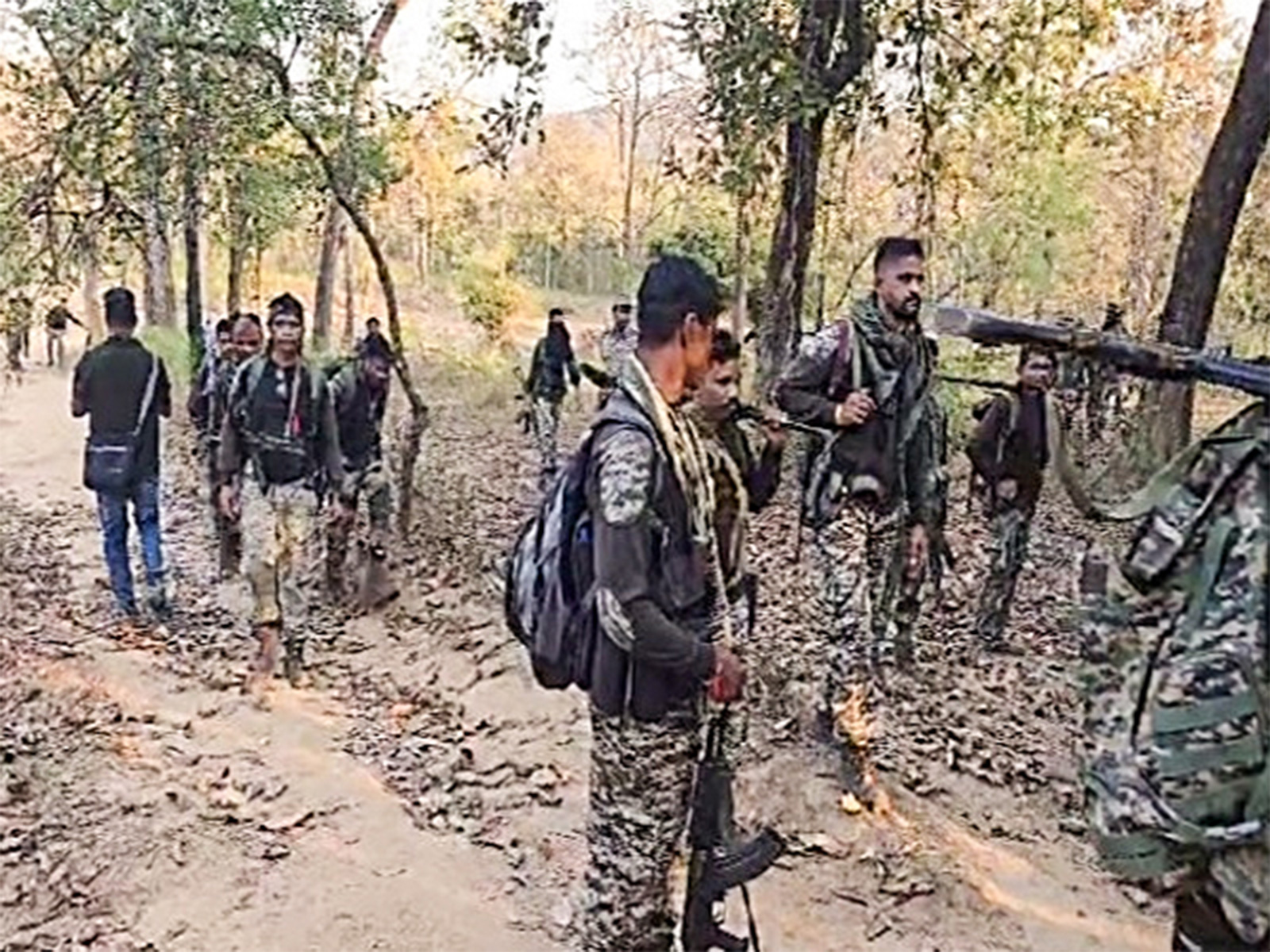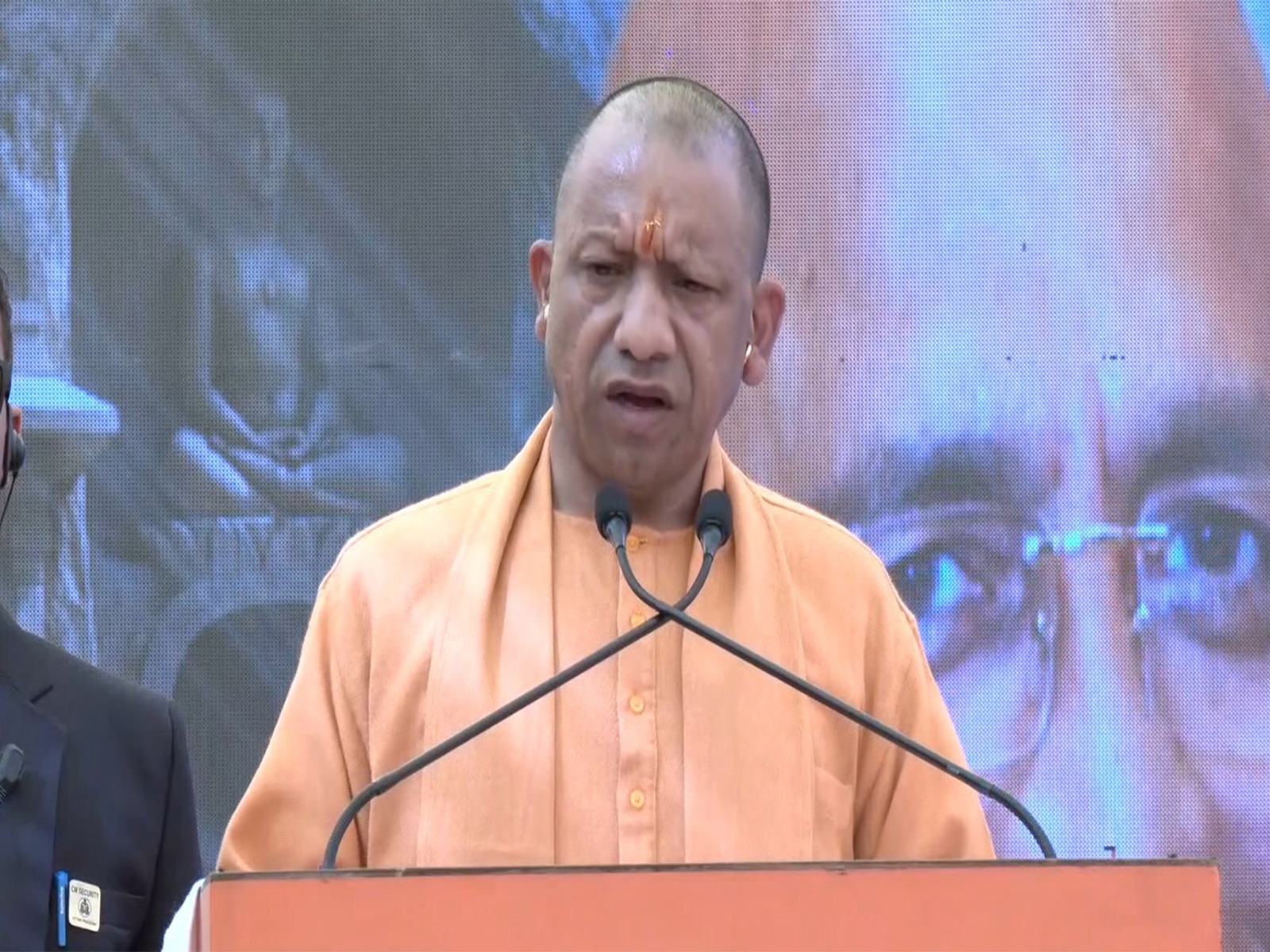Sunshines on Fish Farming in J-K's Bandipora; lucrative employment choice for youth
Oct 11, 2022

Bandipora (Jammu and Kashmir) [India], October 11 : Bandipora has been famous for three A's -Alim, Adab and Aaab (Education, Water, Literature) and over the years first two A's got affected owing to violence while unplanned urbanization and unabated use of plastic ruined the water bodies, said a press release.
However, despite this, the abundance of water in the district still provides an opportunity for the locals to earn their livelihood-be it fish farming, mining of gravel and tourism- water bodies provide it with all, added the release.
Bandipora has a huge potential for fish production owing to its rich water bodies-fish farming is fast emerging as a potential sector for providing employment to the unemployed youth. Fish farming once considered to be the job of a particular community locally called Hanji- has now been owned by the youth of diverse communities and especially educated youth, as per the statement.
Unemployment has been a major concern in J&K with limited opportunities in the industrial sector & another corporate sector due to land-locked adverse topography. Exploiting local resources, especially water resource is one of the fields where unemployed youth have been able to find a good market owing to demand. Fish Farming and its allied sector is providing job to many unemployed youths besides making the Kashmir Valley self-sufficient in fish production as the valley imports dressed fish from outside the state
The Fish Farms in the private sector have increased manifold with hundreds of people getting attracted towards this trade in the district-known for its freshwater streams and Asia's one of the largest lakes-The Wullar Lake.
In Sumlar village of North Kashmir's Bandipora district, a 20-years-old youth along with his uncle has started a private fish farm and he is earning so much that he has given up the dream of getting a government job.
Bilal Ahmad Khawaja 38-was driving a passenger vehicle ferrying passengers in different villages of the district besides looking after his ancestral orchard in his native village Sumlar- 15 kilometres from the district headquarters. However, the continuous strikes and agitations left Khawaja jobless for many months together. "Post-2016 agitation after the death of militant commander Burhan Wani forced me to think of some alternative," he said adding that he sold his matador vehicle and with the technical support of the Department of Fisheries, he was able to exploit the water of the stream that was flowing through his orchard and developed trout fish farm.
Trout is a cold-cum-fresh water fish and needs running water and temperatures ranging between 0 and 20 degree Celsius to thrive. The stream in Sumlar village flows from glaciers nearby and has an apt temperature feasible for the fish. The trout fish is a highly profitable fish and sells at Rs 500 in the local market
Khawaja is having an orchard of 10 Kanals of land from where they exploited the freshwater stream flowing from the middle of the orchard. Fish farms consumed only one Kanal of the orchard but the production from this one Kanal is about ten times higher than the orchard.
We approached the department of fisheries and they taught us how to cultivate fish in this way. We received subsidies under the Centre's Rashtriya Kissan Vikas Yojna (RKVY) for construction, feed, and equipment," Bilal said. He is not only feeding his own family by earning from the farm but is also providing employment to three persons in his villages besides other people who are indirectly earning from this trade.
Seeing the productivity of the fish farm- Khawja's nephew- Abdul Basit- a mass communication graduate also joined his uncle in the business in 2019 and developed two ponds in the same orchard that is co-owned by his uncle and Father. "While I was studying journalism in Cluster University Srinagar, I found many journalists including my mentors getting jobless, especially after the abrogation of article 370 in J&K. I realized that I should have a backup plan," he said adding that he works with a local newspaper and also looks after my fish farm.
Last Year the duo sold 200 kilograms of fish fetching a sale of Rs 10 lac. "We shared a profit of Rs 4 lac each last year while they spend Rs two lac on the feed of the fish and other expenses," said Basit.
He said for the rest of the 8 Kanals of the orchard, they fetched Rs 2.5 lac. "This is why I preferred fish farming over the orchard. Rearing fish gave us better returns," he said adding that this year they are planning to add one more pond to the farm and they expect more production this year.
Taking a cue from the success story of the duo, a neighbour - Adul Gani Bhat along with his two sons Rafiq Ahmad Bhat and Altaf Ahmad hat also converted a part of their orchard into a trout fish farm from the same stream that flows through the village.
Bhatt has developed six ponds so far and has gone ahead in sales last year with a production of 3 tons. He said he was influenced by his neighbour's handsome income from the fish farm. "I had the potential to develop more ponds owing to the topography of my orchard ad hence I was able to get more production," said Rafiq Ahmad Bhat adding that he plans to add more ponds this year.
Assistant Director Fisheries in Bandipora district said among all the fish species, trout being an exotic fish species has thrived well in Kashmir as the climate, topography and environment conditions are well suited for breeding, rearing, production and marketing of trout fishes. He said the Kashmir division of J&K UT has roughly 486 km of rivers, 447 km of the stream and about 157 sq. km of lakes. He said these rivers and streams are suitable for trout farming in the state due to the nature of the environment and the quality of water. In addition to rivers and streams, trout can be cultured in raceways taking water from rivers, streams and even lakes. He said Bandipora especially has potential for carp as well as trout owing to freshwater streams and Wullar Lake-the major source of carp in J&K.
"Realizing the potential of trout farming, the Government of Jammu and Kashmir and the Government of India have started a number of schemes to promote trout farming in the state".
He said the government has strengthened the fisheries sector to make it a useful instrument of economic growth, especially in Bandipora. He said a number of developmental and welfare schemes have been launched for providing assistance to rural poor and unemployed youth for taking up fish culture.
He said there are 82 fish farms in the Bandipora district out of which 78 farms are in the private sector while there are only 4 government units in the district. These in addition to the Wullar lake which is one of the largest natural sources of fish (especially common Carp) in the J&K UT besides three major natural trout water bodies- Arin, Madhumati and Kishenganga.
He said there are 29 private trout units in the district including 25 in Bandipora and four units in Gurez valley besides 49 Carp Units including 17 private farms in Bandipora and 32 in Sumbal Sub-Division. Bandipora district has three major Sub-Divisions including Bandipora, Sumbal and the Gurez Valley.
Assistant Director said the fish farm has been among the only few sectors in the UT that have been least affected by political turmoil or the subsequent lockdowns owing to the pandemic. He said the district witnessed an increase in fish production post-pandemic.
Data reveals that there has been a rise in the production of fish from private farms in the last five years. With only 19.5 quintals of production in 2016, the private fish farms witness a manifold increase up to 83 quintals in the financial year 2021-22.
The Fisheries Department has been extending technical know-how in this regard so that they could produce quality products and get the ruminative price, District Fisheries Officer added. Fish growers all over the district are getting the latest technical know-how in fish culture. The experts interact with the fish growers regularly to boost the fish farming culture in the District. "We consider ourselves as raw hands but the experts from the fisheries department help us to develop the fish farming culture, government-sanctioned one farm in my favour but I develop another of my own Rafiq Ahmad Bhat. "I am requesting my fellows to strive for the development in the private sector rather than wait for government jobs"
The Department of Fisheries distributes stocked seed including rainbow trout seed of fingerlings size (average weight 10 gm) every year to private fish farm owners. Muneer said the department has stocked 10 lakh fish seedlings in water bodies last year including 9 lakh carp seedlings and one lakh trout seedlings. He said brown trout seedlings are deposited in natural water bodies while rainbow trout is stocked in private fish farms of the district.
Fish farming, especially of trout, with improvised technology application, is proving to be a bullying economic indicator, besides supplementing protein in the diet of locals here. "As far as the farming of trout is concerned, it is found in cold water which is there in Nallahs and streams of the valley. But the recent scientific interventions in the field of fish farming have now revealed a wider scope after making proper use of water resources areas," He added.
According to Chief Planning Officer Bandipora Imtiyaz Ahmad, the other sociological aspect of the trend is that fish farming has moved out of the traditional fishermen community and people from other communities have also taken up this job. "Traditionally Hanji (fishermen) community were associated with this job ad there was social taboo attached to it," he said adding that now all the private fish farms belong to the non-fishermen community.
The unprecedented increase in fish production in the district has led to an increase in business in the allied sector.
Shuaib Bashir-a youngster from Bandipora has started a business of delivering traditional home-cooked fish across the Jammu and Kashmir and Ladakh UTs. The fish is cooked in the traditional way and then presented in earthen pots that have added to the charm of the product making it popular among people. "I have been receiving orders from across the J&K and Ladakh and in delivering the fish at their doorstep," he said adding that he even gets orders from Non-Resident Indians from across the globe for their families especially their parents in J&K and Ladakh.
He said he gets the fish from local private fish farms that have increased in the sale of these fish farms besides the age-old pottery art has also been revived as making earthen pots was now a dying art.
Dr Mansoor Rather-a Fisheries scientist at Sher-e-Kashmir Agriculture University Srinagar while quoting several researchers said the success of the rainbow trout culture depends on the utilization of proper and best management practices. "It starts from the selection of a suitable site for the farm to the selection of healthy brooders, good quality seed, proper feeding, fresh, clear and pristine water quality, stocking density, proper marketing channels etc," he said.
Rather said the effluents from the trout farms should be treated properly before diverting it to the natural water bodies. He said impacts from flow-through systems are largely due to disease treatment chemicals, uneaten feed and fish excreta, which can alter water downstream of the farm. "Elevated nutrients reduce water quality and increase the growth of algae and aquatic plants. Output restrictions require farms to have settling areas to remove solid wastes and the residual feed in water to prevent water deterioration and disease outbreaks.
Four Kashmiri scientists- Shakir Ahmad Mir, Shahid Gul, Ishfaq Nazir Mir, Ubaid Qayoom and Zahoor Mushtaq in joint research that was published in May last year observed that trout have very well adapted to the environmental conditions of Kashmir. "But there are some constraints faced by the farmers and other people who want to start this business like lack of adequate seed supply and cost of feed," they said.
Young fish farmers like Rayees and Abdul Basit echoed the demand of subsidizing the feed of fish like that of seed production. They said that can further reduce the stress to the start-ups so that more educated unemployed youth are attracted to this trade. They said for the initial few years, there are fewer returns till fish grow in size and hence handholding in the form of providing feed and other expenses can help start-ups to grow, they added.
"Feed for the fish is very expensive. The government needs to subsidize it or make efforts to reduce the costs so that the fish farmers are not stressed and they can have better returns," Abdul Basit said.

















